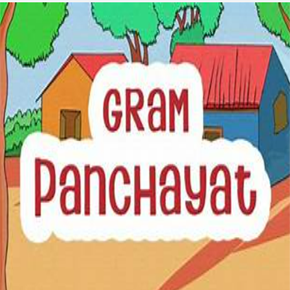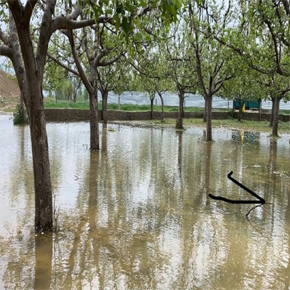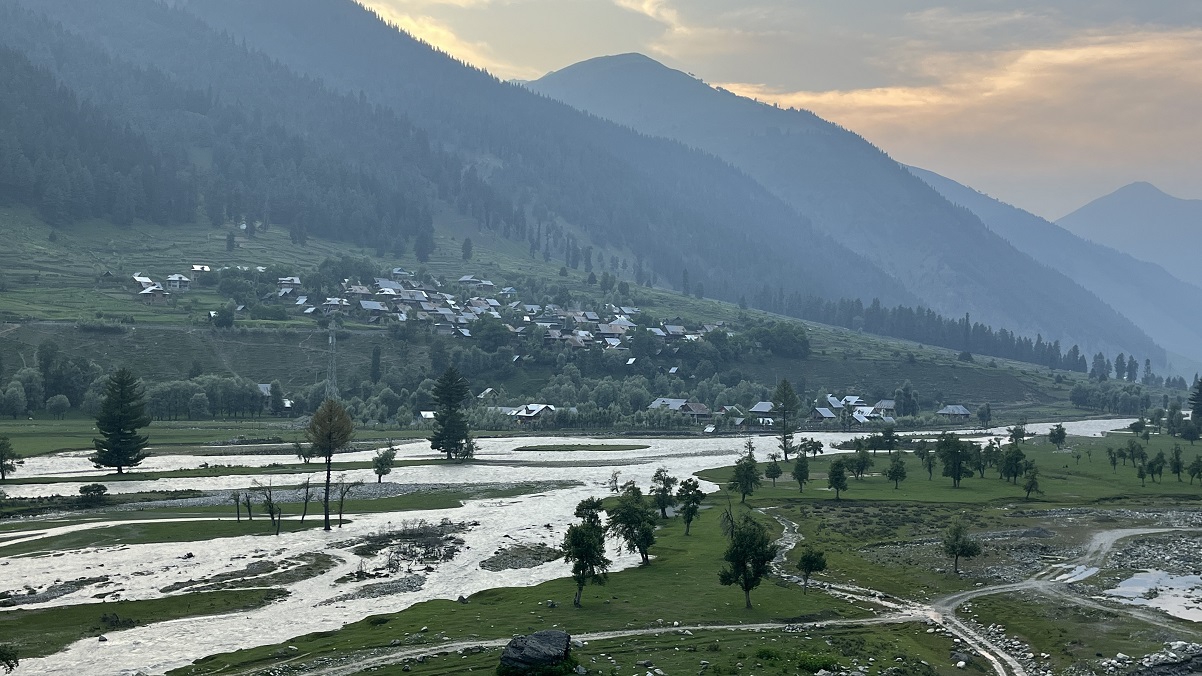Progressive Central laws continue to be kept in a state of suspended animation.
After the abrogation of Article 370 of Indian Constitution, around 900 central laws have been extended to Jammu & Kashmir under different orders since October 31st 2019 until recently. Most of these laws were not applicable in J&K due to constitutional reasons but J&K Assembly had enacted similar legislations which were mostly repealed and revoked post article 370 abrogation. Some erstwhile state laws of J&K were not repealed and they continue to be operational even today. The details of the saved and repealed laws are available in the gazette notification of J&K Reorganisation Act 2019 which was applied with effect from Oct 31st 2019.
It is now almost 5 years since dozens of central laws have been extended to Jammu & Kashmir but people on the other hand are yet to reap the benefits of many of these laws especially those national legislations which are supposed to benefit people from economically weaker sections -EWS of society. In the past as well, I have analyzed many central laws that are not operationalised on the ground. It is now almost 5 years since central laws are applicable in J&K and if these laws continue to be non-operational, the Govt of India, especially the Ministry of Home Affairs, has to take a serious notice of it.
Local bureaucrats and Govt officials are not capable of making central laws and their enforcement in J&K possible. They need to seek guidance from experts and civil society organizations. There is hardly any serious brainstorming done at the Governmental level on progressive central laws like Forest Rights Act , Right to Information Act , Right to Fair Compensation Act (LARR Act 2013), SC ST Atrocities Act , Right to Education Act. Holding a seminar or a workshop for one day isn’t enough, there have to be constant follow ups and advocacy and the Govt must seek public suggestions in making these laws workable on the ground.
Meeting with Union Home Minister
In the past, I have extensively written about different progressive central laws and their benefits, especially the Forest Rights Act, Right to Fair Compensation Act (LARR-2013), Right to Information Act-RTI , Consumer Protection Act, National Food Security Act -NFSA etc. These laws are not implemented on the ground. With an aim to do advocacy on making these laws operational, I along with a civil society delegation brought this matter into the notice of Union Home Minister Mr Amit Shah in November 2022 when he had visited Srinagar. I was accompanying the delegation led by Mr Khurshid Ahmad Ganai former IAS officer and some other prominent persons including some educationists and senior medical doctors. We had a detailed meeting with Home Minister and I was the spokesperson of that group. I spoke in detail about different central laws extended to J&K and their benefits not reaching to people.During the interaction I spoke about the Forest Rights Act 2006 , SC ST Atrocities Act 1989 , Right to Fair Compensation Act (LARR Act 2013), Right to Information Act (RTI) 2005 and Right to Education Act (RTE) 2009.
The Union Home Minister had appreciated our delegation as we specifically discussed the importance of these laws and in-fact he assured us that these laws should be implemented in letter and spirit.
The Lt Governor Mr Manoj Sinha, Union Minister of State in PMO, Dr Jitendra Singh were accompanying the Home Minister. The then Chief Secretary Dr A K Mehta and other senior officers of the administration were also present in the meeting. During the meeting, the Union Home Minister clear cut gave directions to the administration that all the provisions of the central laws should be implemented. This boosted our morale and we were hopeful that there would be a followup from the Govt especially the Chief Secretary or Secretary GAD or Law Department would hold another round of meeting with us.
Meeting with LG Manoj Sinha
Infact, before our meeting with the Home Minister in November 2022, I along with some senior members of J&K RTI Movement had once met with Lt Governor Mr Manoj Sinha in January 2022 at Raj Bhavan, Srinagar. We had raised issues related to e-governance and non-updation of Govt websites. In addition, we also discussed bringing Chopan shepherds of Jammu & Kashmir under the ST category. The LG gave us a patient hearing and within a few days a circular was issued by the General Administration Department (GAD) on 29.1.2021.
Vide Government order No: 148-JK (GAD) of 2021 dated: 13.02.2021 the Government accorded a sanction for constitution of a three member committee headed by the Secretary to Government Information Technology (IT) Department. State Informatics Officer (SIO) of National Informatics Centre (NIC) J&K and a representative from J&K e-Governance agency to be nominated by Secretary IT Department are the two other members of the committee. The aim of constituting the committee is to continuously supervise the updating of official websites of Govt departments and districts in J&K. The impact of that meeting was great and dozens of Govt departments created their official twitter handles ( now called X) so that aggrieved could tag their grievances to the Govt officials
RTE Act not enforced on ground
As explained above, the Right of Children to Free and Compulsory Education Act which is commonly known as the Right to Education Act (RTE) is an Act of the Parliament of India enacted on 4 August 2009. This law describes the modalities of the importance of free and compulsory education for children between the age of 6 to 14 years in India under Article 21A of the constitution. In the year 2002 , 86th amendment was made in the Indian constitution by making education a fundamental right under Article 12-A . Prior to that, this came under directive principles of state policy.
Right to Education Act (RTE Act 2009) became applicable in Jammu and Kashmir after article 370 was repealed. Infact, J&K had also taken several measures in the past on education especially when Maharaja Hari Singh was the ruler of Kashmir. He had introduced Jabri schools, where children would be taken forcibly. Infact, Sheikh Mohammad Abdullah also continued to run those Jabri schools when he ruled J&K from 1948 to 1953.
The J&K School Education Department hasn’t come up with the rules that would enable the Directorate of School Education Kashmir and Jammu to enforce the RTE Act, especially its section Section 12. The section 12 (1) (c) of the RTE Act enables students from economically weaker sections (EWS) to take admission in Private Schools and their fees would be reimbursed by the Govt. In all the Private Schools except Minority Institutions there is a provision of 25 % reservation in admissions to children belonging to economically weaker sections (EWS) and disadvantaged groups.
The State of the Nation 2015 report by IIM Ahmedabad, (based on official data obtained from the District Information System for Education) puts the total number of seats under this provision as 1.6 crore over the next eight years (about 20 lakh seats per year). This means that there is a huge untapped RTE potential with respect to economically weaker sections (EWS category). Many states including J&K are yet to fulfill their obligations to their children from weaker sections of society.
It was hoped that post article 370 abrogation J&K Govt would give the benefits of RTE Act 2009 to economically weaker sections of society but that isn’t happening. Recently, I highlighted this issue again in my weekly Inkishaf and specifically explained the non implementation section 12 (1 ) (c) which enables students from lower income groups to get admission in private schools.
Conclusion
Before meeting the Union Home Minister in November 2022, I had the apprehension that the Govt of India was deliberate in not enforcing the central laws like LARR Act 2013 , Forest Rights Act (FRA) , RTE Act or RTI Act in J&K. However, when Mr Amit Shah gave a clear cut direction to the administration sitting in the Rajbhavan meeting hall that all laws should be enforced in letter and spirit, it gave me great hope.
The Home Minister was very responsive to my suggestions and asked me to meet the LG Mr Manoj Sinha who was sitting next to him. After we finished the meeting, Lt Governor (LG) Mr Manoj Sinha signaled his team to note down my contact details. An officer noted down my contact number but till date I never got a chance to give my feedback to the LG about the non-implementation of central laws. I am hopeful that this write-up will reach LG Mr Manoj Sinha and he would call a meeting about the implementation of progressive central laws, especially Right to Education Act to be enforced into toto, particularly focusing on the implementation of the section 12 (1) (c) of this act.

























































































